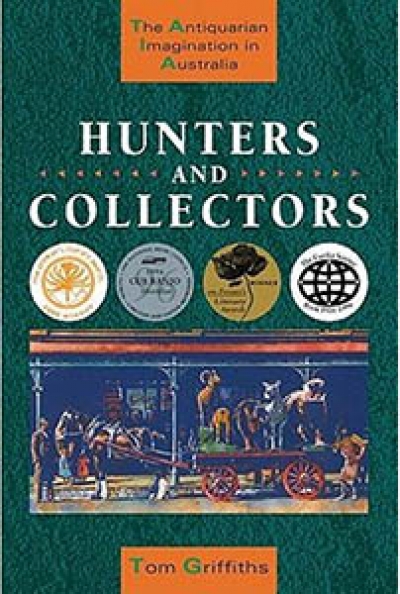Archive
The Truth Teller is a novel about a man hiding from himself. Told with pith and passion by Margaret Simons, it chronicles the career of journalist, Simon Spence. Spence lives in an exterior world. He hides behind facts and what he understands to be the truth. But Spence’s truth is a public one, not private. His private truth lurks far beneath the surface, suppressed by the very nature of the journalist’s ‘truth telling’ work. Simons writes about a world she knows, as a former journalist on The Australian. Her crisp writing style is ideal for the ambiguity of the subject. With razor-sharp words Simons sends messages that are as soft and blurred as clouds. She conveys the subterranean urges of the soul (‘the earthworm heart of a man’) as concisely as the fast-paced media world that buries it.
... (read more)Hunters and Collectors: The antiquarian imagination in Australia by Tom Griffiths
Ramona Koval: I would like to begin by talking about the differences between writing fiction and non-fiction. You write about birth and youth, sex, illness, death, sisters ... the big things in life. How does that differ for writing fiction and non-fiction, if at all?
Helen Garner: I find that the subjects for non-fiction that I write about seem to present themselves from outside myself, whereas the fictional ones are much more some little thing that’s been worming away at me that I’ve become conscious of. The fiction kind of worms its way out and the non-fiction worms its way in, I suppose you could say it that way.
... (read more)Richard Hall, in ‘Debasing Debate: The Language of the Bland’, had neither the grace nor the courtesy to contact me when preparing his essay on ‘the language, methods and findings’ of The Mackay Report. Had he done so, I might have been able to caution him against publishing such false and misleading material. I could certainly have asked him to correct several errors of fact but, more importantly, I could have alerted him to the many misconceptions, misrepresentations, and untruths in his article which would inevitably destroy any value it might otherwise have.
... (read more)







